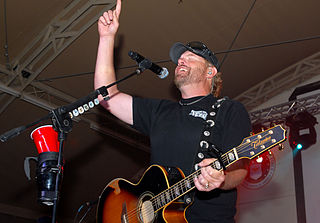A Quote by Lauren Groff
I write everything out in longhand in one fast go. And then I throw out the first few and start over again. By the end of the first draft, the whole thing's messy and disgusting and horrible, but you really understand the foundational stuff.
Related Quotes
The first draft of everything, I write longhand. One of the nice things about that is that it makes you keep going. If you write a bad sentence on the computer, then it's very tempting to go back and fidget with it and spend another 20 minutes trying to make it into a good sentence. When you're handwriting, you really just have to move on.
I am a technophile, so there is no such thing as a first draft. The first draft plunges on, and about a quarter of the way through it I realise I'm doing things wrong, so I start rewriting it. What you call the first draft becomes rather like a caterpillar; it is progressing fairly slowly, but there is movement up and down its whole length, the whole story is being changed. I call this draft zero, telling myself how the story is supposed to go.
It can take years. With the first draft, I just write everything. With the second draft, it becomes so depressing for me, because I realize that I was fooled into thinking I'd written the story. I hadn't-I had just typed for a long time. So then I have to carve out a story from the 25 or so pages. It's in there somewhere-but I have to find it. I'll then write a third, fourth, and fifth draft, and so on.
Every first draft sucks, so when you have your favorite novel, and you're like, 'Wow, this is a masterpiece,' and then you write your first draft, and you're like, 'This is really bad,' and then you're like 'I can't do this because this is nowhere close.' When, in reality, the book you loved so much started out just as crappy.
When you sit down and write a song, you kind of have the idea for the song, and you sit there at the piano and you kinda just write it. And then of course later there's some dinking around with it and changing some stuff. But there's this thing that happens when the song first comes out, that sort of magic when it first comes out of the ether, and you can't even really explain where it comes from. That happens so much with music, and people understand that with music. But I really think that a lot of movie and TV should be the same way.
I'd had my whole life to write my first album. I had my No. 1 and my third single out, and they go, 'Hey, guess what? We need to start recording the next one.' I'm like, 'Uh oh, I got to write another album. Well, how am I gonna write 'Should've Been a Cowboy' and 'Ain't Worth Missing' and all that again?' It took me forever to write the first one.
The problem is once you've written the opening paragraph and worked out how the rest of the story will go in your head, there's nothing in it for you. I write in longhand using disposable fountain pens on the right-hand side of the notebook for the first draft, then I rewrite some of the sentences and paragraphs on the left-hand side.
I'm not typing. I write only by longhand. I've always written first drafts by hand and then once I was into a second or third draft I wrote insert pages on a typewriter. But I got rid of all my typewriters about three or four novels ago and now I do everything by hand. I write by hand because it makes me go slow and going slow is what I like.
The best advice on writing was given to me by my first editor, Michael Korda, of Simon and Schuster, while writing my first book. 'Finish your first draft and then we'll talk,' he said. It took me a long time to realize how good the advice was. Even if you write it wrong, write and finish your first draft. Only then, when you have a flawed whole, do you know what you have to fix.





































